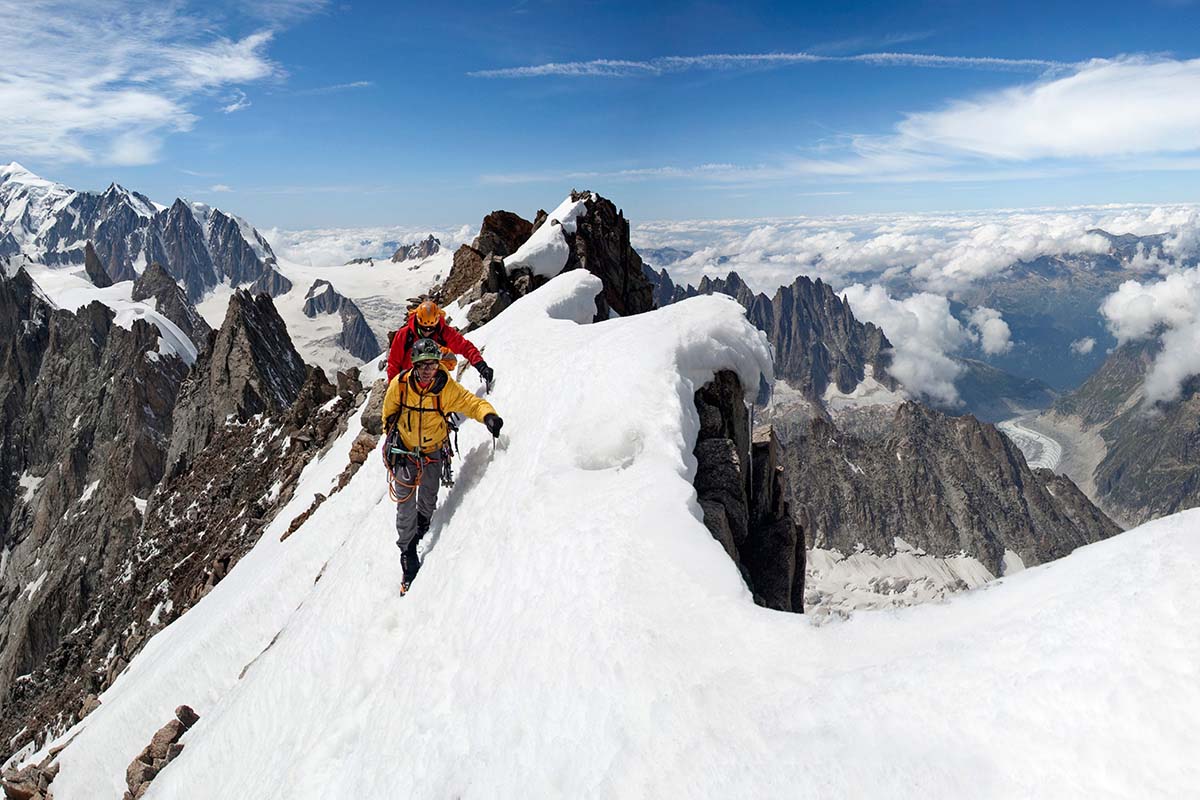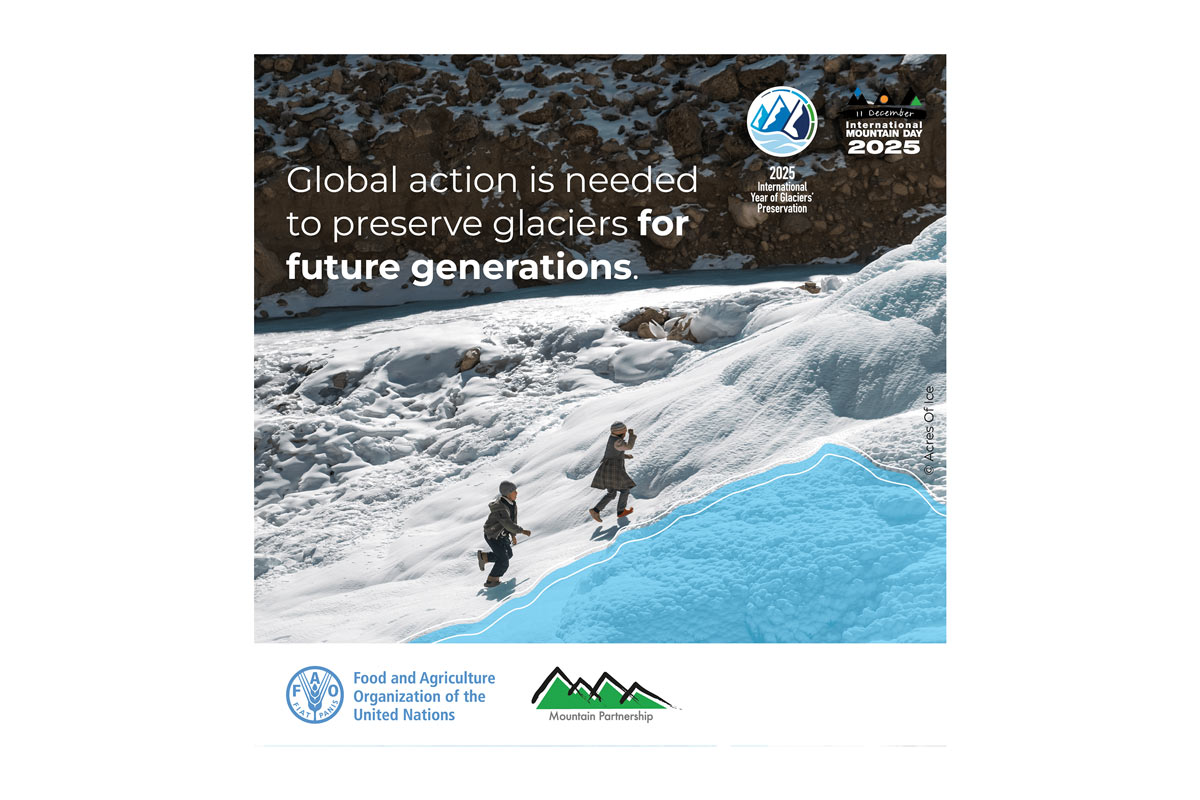Alpinism is not only a physical activity requiring athletic qualities and technical expertise. Defining it simply by pursuits like the exploration of fascinating landscapes or the quest for personal achievements is incomplete. It is all of these features and furthermore characterized by a frame of mind of personal engagement, sense of self-responsibility, knowledge of – and respect – for its natural playground, and strong solidarity and social relationships.
These exceptional characteristics, its historical and cultural backgrounds, make alpinism worth identifying as an Intangible Cultural Heritage (=ICH) of outstanding and universal human and social value.
Consequently, efforts began in 2009 in order to gain alpinism inclusion on the UNESCO ICH list. UIAA member federations were kindly invited to lobby to their respective governments to join the project. Eventually three countries took up this significant task: France (F), supported by Switzerland (CH) and Italy (I).
The demanding work has been accomplished through coordination between interested parties from the aforementioned countries. Specifically by:
* A core Pilot group of six member representatives of mountain bodies (F,CH, I), mountain guides (F), Alpine clubs (F/UIAA) and a university (CH),
* Consultation and conferences involving a wider Pilot group, with additional representatives of these bodies, notably from Swiss and Italian Alpine clubs and mountain guide associations.
* Furthermore, a very broad panel of both well or lesser known alpinists delivered letters of comments, as well as the UIAA – International Climbing and Mountaineering Federation – with its supporting resolution of the GA from October 20, 2017 (see February 2017 article)
The UNESCO Inter-ministerial General Assembly in Bogota, solemnly declared on December 11, 2019 to:
- Include alpinism on the Representative List of the Intangible Cultural Heritage of Humanity;
- Congratulate the applying parties for having submitted documentation of high quality and international relevance on the subject; and
- Congratulate the states for having submitted a project which underlines the importance of traditional knowledge related to nature and the universe, and which proposes a positive example of sustainable relationships between human beings and their environment.
Alpinism is recognized by the UNESCO as an art :
- of climbing mountain summits and faces by one’s own physical, technical and intellectual strengths;
- of challenging one’s own capabilities and expertise while negotiating natural, non-artificial obstacles;
- of evaluating and assuming measured risks;
- of self-managing, self-responsibility and solidarity; and
- of respecting other people and natural sites.
Benefits
The benefits of alpinism’s inclusion on the UNESCO ICH list include:
- The existence of a precise description of alpinism’s characteristics, agreed upon after many working sessions of the involved organisations, as an internationally recognized reference;
- Recognising alpinism’s specific and outstanding values;
- Having an additional means of promoting the activity and its values;
- Having a definition in place to avoid misuse of the term; and
- Having a duly signed engagement of the concerned states to support the promotion of the activity and to preserve responsible freedom of practice and access to sites.
Next Steps
All interested parties over the world are kindly invited to make use of the benefits outlined above. Diverse measures for promoting and safeguarding the activity are listed in the application document, and a follow-up regarding their implementation is required. For example, the three undersigning states have to deliver corresponding progress reports to UNESCO by the end of 2021 and 2025.
UIAA member federations may make use of the ICH assets to promote and preserve the activity of alpinism and as a reference towards their own respective authorities. Furthermore, in the future there will be the opportunity for additional countries to join those now recognized as being integral to this successful application. This will be in the form of writing new documentation in cooperation with the present applicants.
by
Claude Eckhardt
UIAA Honorary Member
Member of the Core Pilot group, FFCAM – Fédération française des clubs alpins et de montagne – delegate and representing the views of alpinist associations
Further reading:
UNESCO: Intangible Cultural Heritage of Humanity
Main photo: UIAA/Monica Dalmasso
UIAA Quote:
“We commend the work of everyone involved in the successful motion for alpinism to be added to UNESCO’s Representative List of the Intangible Cultural Heritage of Humanity. Alpinism deserves this pre-eminent recognition for its unique characteristics, deep historical and cultural significance, and in a world where we are facing a number of environmental challenges, the positive impact it fosters in creating sustainable relationships between humans and mountain communities and regions. The skills shared through alpinism and its ethical qualities have significant universal social value.”
Frits Vrijlandt, UIAA President
Dedicated UNESCO Guides



